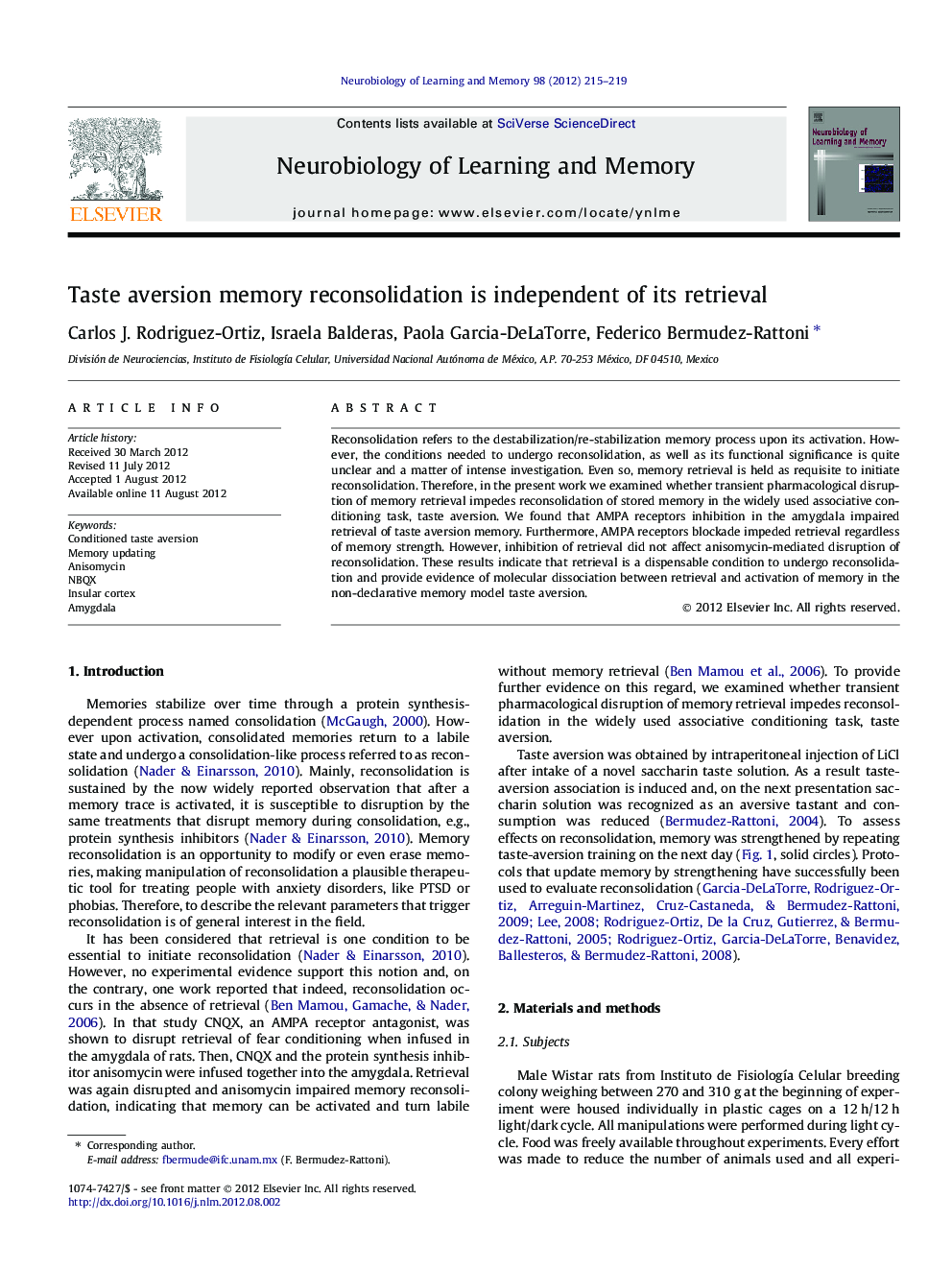| Article ID | Journal | Published Year | Pages | File Type |
|---|---|---|---|---|
| 936658 | Neurobiology of Learning and Memory | 2012 | 5 Pages |
Reconsolidation refers to the destabilization/re-stabilization memory process upon its activation. However, the conditions needed to undergo reconsolidation, as well as its functional significance is quite unclear and a matter of intense investigation. Even so, memory retrieval is held as requisite to initiate reconsolidation. Therefore, in the present work we examined whether transient pharmacological disruption of memory retrieval impedes reconsolidation of stored memory in the widely used associative conditioning task, taste aversion. We found that AMPA receptors inhibition in the amygdala impaired retrieval of taste aversion memory. Furthermore, AMPA receptors blockade impeded retrieval regardless of memory strength. However, inhibition of retrieval did not affect anisomycin-mediated disruption of reconsolidation. These results indicate that retrieval is a dispensable condition to undergo reconsolidation and provide evidence of molecular dissociation between retrieval and activation of memory in the non-declarative memory model taste aversion.
► AMPA receptors inhibition in the amygdala impaired retrieval of taste aversion memory regardless of memory strength. ► Inhibition of retrieval did not affect anisomycin disruption of reconsolidation. ► Retrieval does not trigger destabilization required for memory reconsolidation. ► Relevant updated information causes stored memory to render labile and susceptible for reconsolidation.
